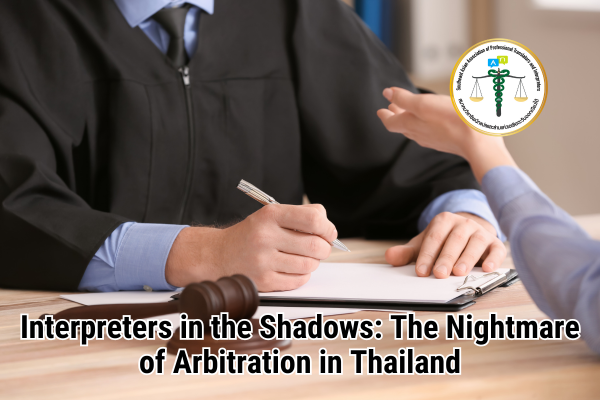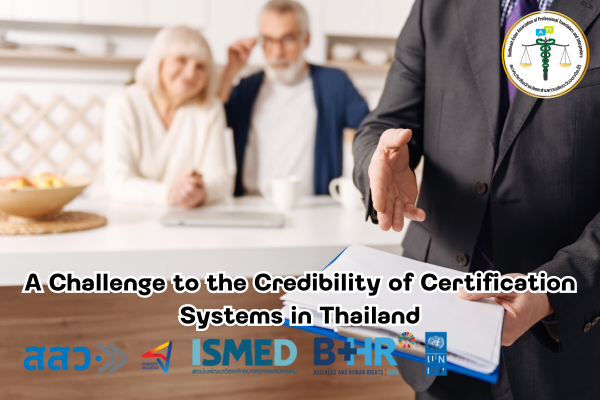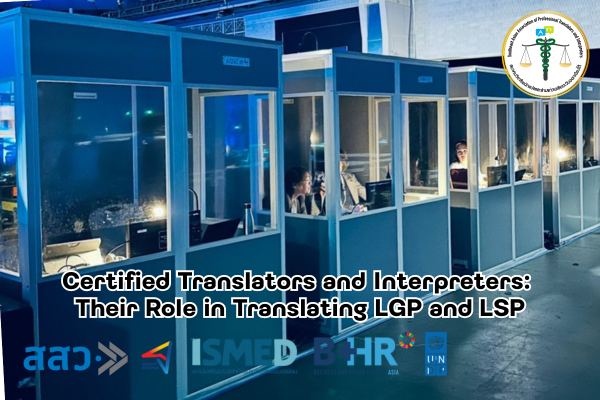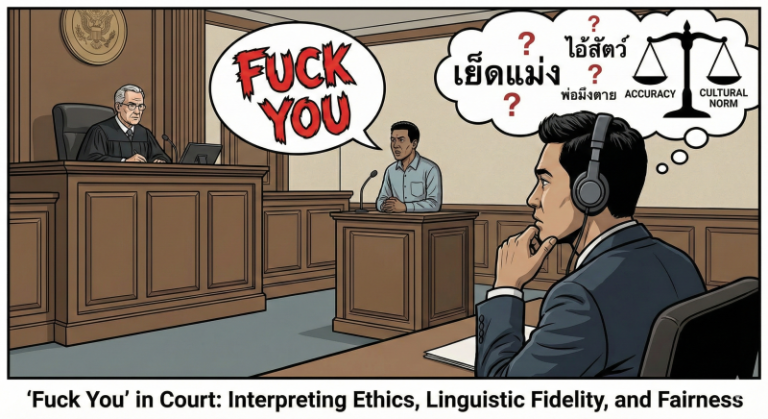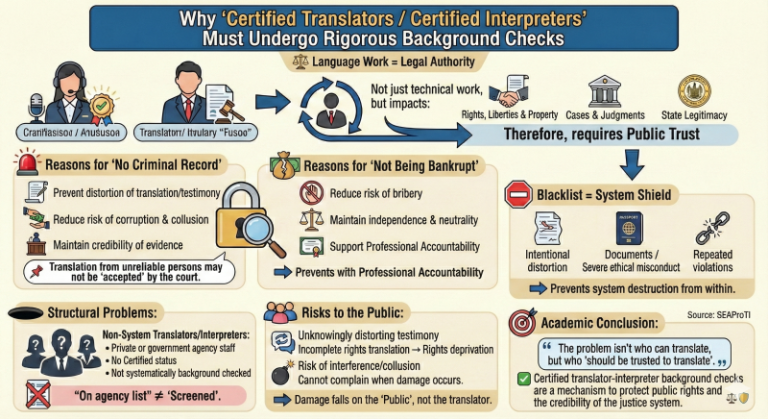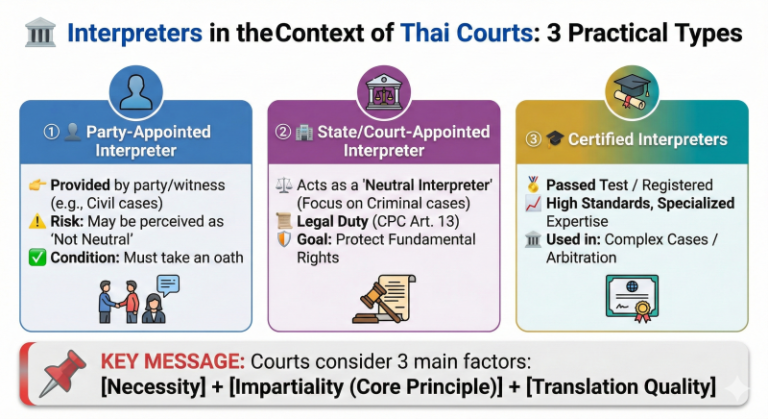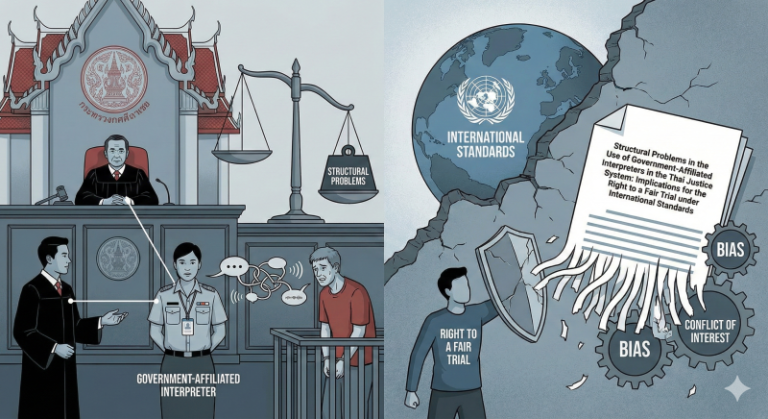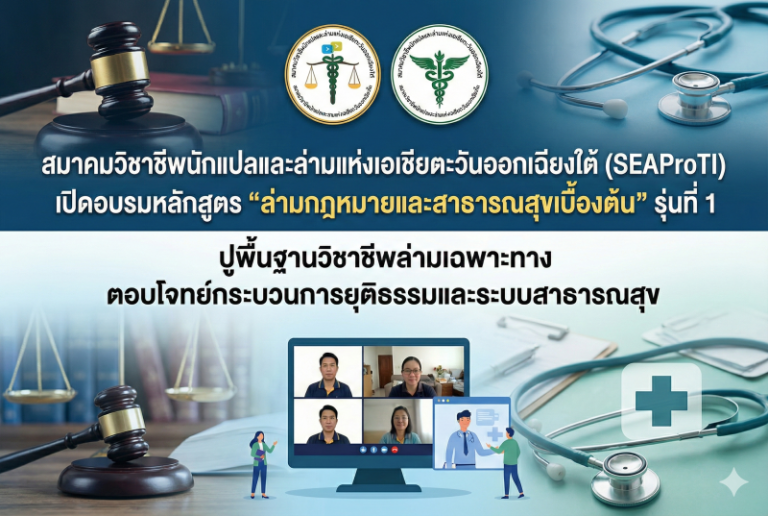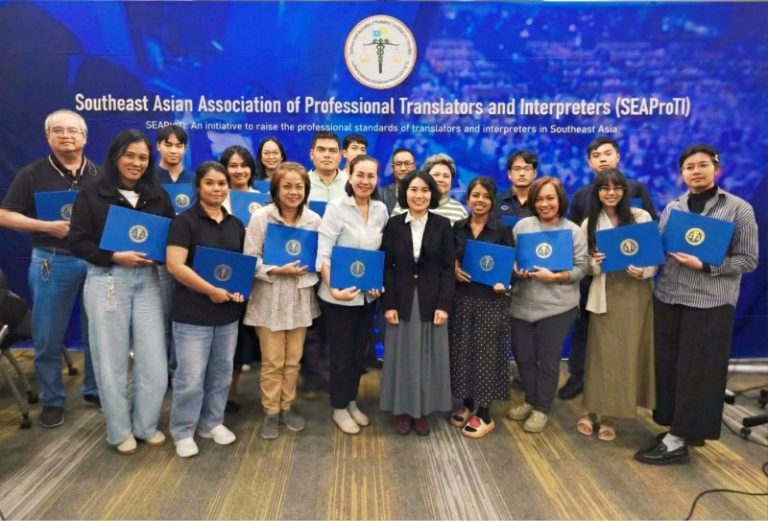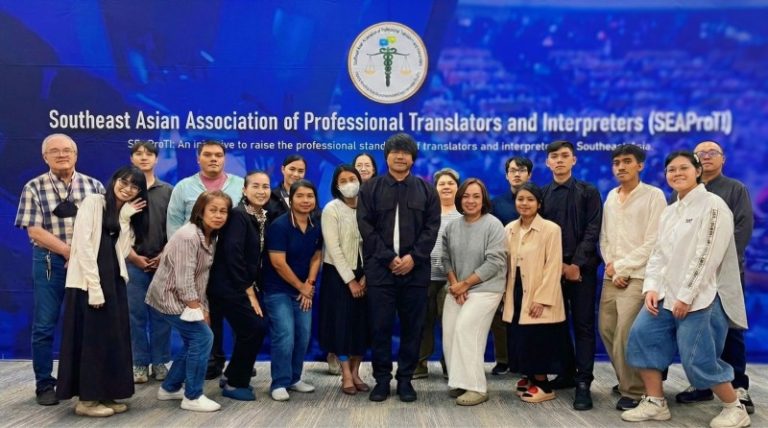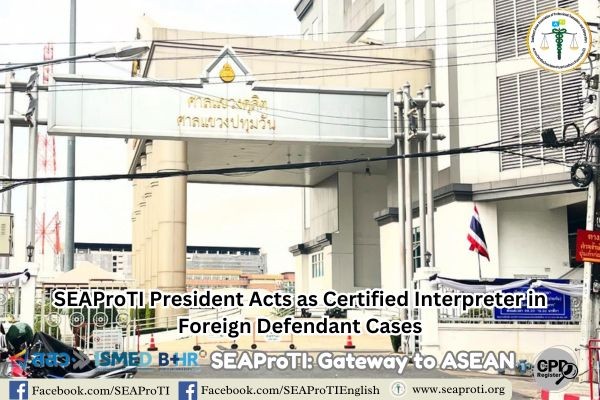“Interpreters in the Shadows: The Nightmare of Arbitration in Thailand”
22 February 2025, Bangkok – Working as an interpreter in arbitration proceedings in Thailand may seem like a challenging and intriguing job, but behind the scenes, it is fraught with obstacles that turn it into a “nightmare” for interpreters. This article explores the struggles interpreters face in Thai arbitration, from intimidation to limitations in time and technology.
1. Biased Arbitrators and Intimidation of Interpreters
One of the worst nightmares is encountering an opposing arbitrator—such as a university professor—who exhibits bias and intimidates everyone in the room, including the interpreter. Interpreters, who should serve as neutral conveyors of communication, find themselves coerced, threatened, and discredited, instilling fear. Such situations not only undermine the interpreter’s credibility but also compromise the fairness of the proceedings.
2. Lack of Access to Case Information
Another significant issue arises when the opposing party prohibits interpreters from fully attending the hearings. With only limited information, interpreters cannot translate accurately or comprehensively. This lack of context distorts communication between parties and may lead to misguided decisions, highlighting an unfair exclusion of interpreters from the process.
3. Limited Preparation Time for Major Cases
In complex, high-stakes arbitration cases, interpreters are often given just two days to prepare and are restricted from accessing extensive documentation. Meanwhile, other participants in the hearing room have had months to study the documents and understand the case thoroughly. This disparity puts interpreters at a severe disadvantage, unable to adequately prepare technical terminology or grasp the necessary context.
4. Inadequate Hearing Room Layout
The layout of arbitration hearing rooms in Thailand is often too small, leaving interpreters without a suitable place to sit and work. At times, they are positioned where they cannot hear clearly or communicate effectively. This poor environment directly affects translation quality and adds unnecessary stress to interpreters during proceedings.
5. Technology Ill-Suited for Testimony via Interpreters
The technology used to record statements in arbitration is frequently incompatible with interpretation needs. Outdated equipment or unstable systems can cause delays or incomplete recordings of testimony, creating a major barrier to accurately and swiftly conveying information.
Conclusion: Time to Elevate Support for Interpreters
The issues outlined above are not mere “nightmares” of the imagination—they are real challenges that interpreters in Thai arbitration face. Addressing these problems requires recognizing the critical role of interpreters, ensuring proper preparation, access to information, and suitable working conditions, as well as adopting modern technology. Only then can the justice process proceed smoothly and fairly for all parties involved.
SEAProTI’s certified translators, translation certification providers, and certified interpreters:
The Southeast Asian Association of Professional Translators and Interpreters (SEAProTI) has officially announced the criteria and qualifications for individuals to register as “Certified Translators,” “Translation Certification Providers,” and “Certified Interpreters” under the association’s regulations. These guidelines are detailed in Sections 9 and 10 of the Royal Thai Government Gazette, issued by the Secretariat of the Cabinet under the Office of the Prime Minister of the Kingdom of Thailand, dated July 25, 2024, Volume 141, Part 66 Ng, Page 100.
To read the full publication, visit: the Royal Thai Government Gazette
“ล่ามในเงามืด: ฝันร้ายของอนุญาโตตุลาการไทย”
22 กุมภาพันธ์ 2568, กรุงเทพมหานคร – การทำงานเป็นล่ามในกระบวนการอนุญาโตตุลาการในประเทศไทยอาจดูเป็นงานที่ท้าทายและน่าสนใจ แต่เบื้องหลังกลับเต็มไปด้วยอุปสรรคที่ทำให้ล่ามต้องเผชิญกับสถานการณ์ที่เปรียบเสมือน “ฝันร้าย” บทความนี้จะพาคุณไปสำรวจปัญหาที่ล่ามต้องเผชิญในงานอนุญาโตตุลาการไทย ตั้งแต่การถูกข่มขู่ ไปจนถึงข้อจำกัดด้านเวลาและเทคโนโลยี
1. อนุญาโตตุลาการลำเอียงและการข่มขู่ล่าม
หนึ่งในฝันร้ายที่เลวร้ายที่สุดคือการเผชิญหน้ากับอนุญาโตตุลาการฝ่ายตรงข้ามที่มีอคติ เช่น อาจารย์มหาวิทยาลัยที่ใช้อำนาจข่มขู่ทุกคนในห้องพิจารณาคดี ไม่เว้นแม้แต่ล่าม ล่ามที่ควรมีบทบาทเป็นเพียงผู้ถ่ายทอดคำพูดอย่างเป็นกลาง กลับถูกบังคับ ข่มขู่ และดิสเครดิตจนเกิดความกลัว สถานการณ์เช่นนี้ไม่เพียงทำลายความน่าเชื่อถือของล่าม แต่ยังกระทบต่อความเป็นธรรมในกระบวนการพิจารณาคดี
2. ขาดโอกาสเข้าถึงข้อมูลคดี
การที่ฝ่ายตรงข้ามไม่อนุญาตให้ล่ามเข้าร่วมฟังการพิจารณาคดีทั้งหมดเป็นอีกหนึ่งปัญหาใหญ่ ล่ามที่ได้รับข้อมูลเพียงเล็กน้อยย่อมไม่สามารถแปลได้อย่างครบถ้วนและแม่นยำ การขาดบริบทของคดีทำให้การสื่อสารระหว่างฝ่ายต่าง ๆ บิดเบี้ยว และอาจนำไปสู่การตัดสินใจที่ไม่ถูกต้อง ความไม่เท่าเทียมนี้สะท้อนถึงการขาดการยอมรับในบทบาทสำคัญของล่าม
3. เวลาเตรียมตัวจำกัดกับคดีใหญ่
ในคดีอนุญาโตตุลาการที่มีความซับซ้อนและเป็นคดีใหญ่ ล่ามกลับได้รับเวลาเตรียมตัวเพียง 2 วันเท่านั้น แถมยังถูกจำกัดไม่ให้เข้าถึงเอกสารมากนัก ในขณะที่ผู้เข้าร่วมคนอื่น ๆ ในห้องพิจารณาคดีมีโอกาสศึกษาเอกสารและทำความเข้าใจคดีนานเป็นเดือน ความเหลื่อมล้ำนี้ทำให้ล่ามตกอยู่ในสถานการณ์ที่เสียเปรียบ ไม่สามารถเตรียมคำศัพท์เทคนิคหรือบริบทที่จำเป็นได้อย่างเพียงพอ
4. ห้องพิจารณาคดีที่ไม่เอื้อต่อการทำงาน
เลย์เอาท์ของห้องในงานอนุญาโตตุลาการไทยมักมีขนาดเล็กเกินไป ล่ามจึงไม่มีที่นั่งที่เหมาะสมในการทำงาน บางครั้งต้องนั่งในตำแหน่งที่ได้ยินไม่ชัดเจนหรือไม่สะดวกต่อการสื่อสาร สภาพแวดล้อมที่ไม่ดีนี้ส่งผลโดยตรงต่อคุณภาพการแปล และเพิ่มความเครียดให้กับล่ามในระหว่างการพิจารณาคดี
5. เทคโนโลยีไม่รองรับการเบิกความ
เทคโนโลยีในการบันทึกคำพูดในกระบวนการอนุญาโตตุลาการมักไม่เหมาะสมกับการทำงานผ่านล่าม อุปกรณ์ที่ล้าสมัยหรือระบบที่ไม่เสถียรอาจทำให้เกิดความล่าช้า หรือการบันทึกคำเบิกความที่ไม่ครบถ้วน สิ่งนี้กลายเป็นอุปสรรคสำคัญที่ขัดขวางการถ่ายทอดข้อมูลอย่างถูกต้องและรวดเร็ว
สรุป: ถึงเวลายกระดับการสนับสนุนล่าม
ปัญหาที่กล่าวมาข้างต้นไม่ใช่แค่ “ฝันร้าย” ในจินตนาการ แต่เป็นความท้าทายที่ล่ามในกระบวนการอนุญาโตตุลาการไทยต้องเผชิญจริง ๆ การแก้ไขสถานการณ์เหล่านี้จำเป็นต้องเริ่มจากการให้ความสำคัญกับบทบาทของล่าม ทั้งในแง่การเตรียมตัว การเข้าถึงข้อมูล และการจัดสภาพแวดล้อมที่เหมาะสม รวมถึงการนำเทคโนโลยีที่ทันสมัยมาใช้ เพื่อให้กระบวนการยุติธรรมดำเนินไปได้อย่างราบรื่นและเป็นธรรมสำหรับทุกฝ่าย
เกี่ยวกับนักแปลรับรอง ผู้รับรองการแปล และล่ามรับรองของสมาคมวิชาชีพนักแปลและล่ามแห่งเอเชียตะวันออกเฉียงใต้
สมาคมวิชาชีพนักแปลและล่ามแห่งเอเชียตะวันออกเฉียงใต้ (SEAProTI) ได้ประกาศหลักเกณฑ์และคุณสมบัติผู้ที่ขึ้นทะเบียนเป็น “นักแปลรับรอง (Certified Translators) และผู้รับรองการแปล (Translation Certification Providers) และล่ามรับรอง (Certified Interpreters)” ของสมาคม หมวดที่ 9 และหมวดที่ 10 ในราชกิจจานุเบกษา ของสำนักเลขาธิการคณะรัฐมนตรี ในสำนักนายกรัฐมนตรี แห่งราชอาณาจักรไทย ลงวันที่ 25 ก.ค. 2567 เล่มที่ 141 ตอนที่ 66 ง หน้า 100 อ่านฉบับเต็มได้ที่: นักแปลรับรอง ผู้รับรองการแปล และล่ามรับรอง


